It hasn’t been that long since major manufacturers stepped into our market with global EV products and based on the products on offer and people responding to them, the trend line for a premium EV seems to have an enormous potential to rise upward. There’s a space between the lower tier of EVs like the ZS EV and Kona and the most premium offerings like Mercedes with their EQC. Utilize the space well and you’ll have a customer base that spreads across a large range of budgets. BMW and Kia have recognised this and wasted no time bringing the i4 and the EV6 here. Although they are poles apart in their respective class of vehicles, their pricing is awfully close to each other and this has naturally forced us to compare them both.
Design
The i4 is based around the 4-Series Gran Coupe, essentially meaning it is a traditional sedan with a slightly sleeker roofline and subtle creases throughout the bodyline. The front of the i4 looks like it wants to eat you, but not as eagerly as the M3s and the M4s do. But as you approach the rear there is calmness and composure of the Gran Coupe.
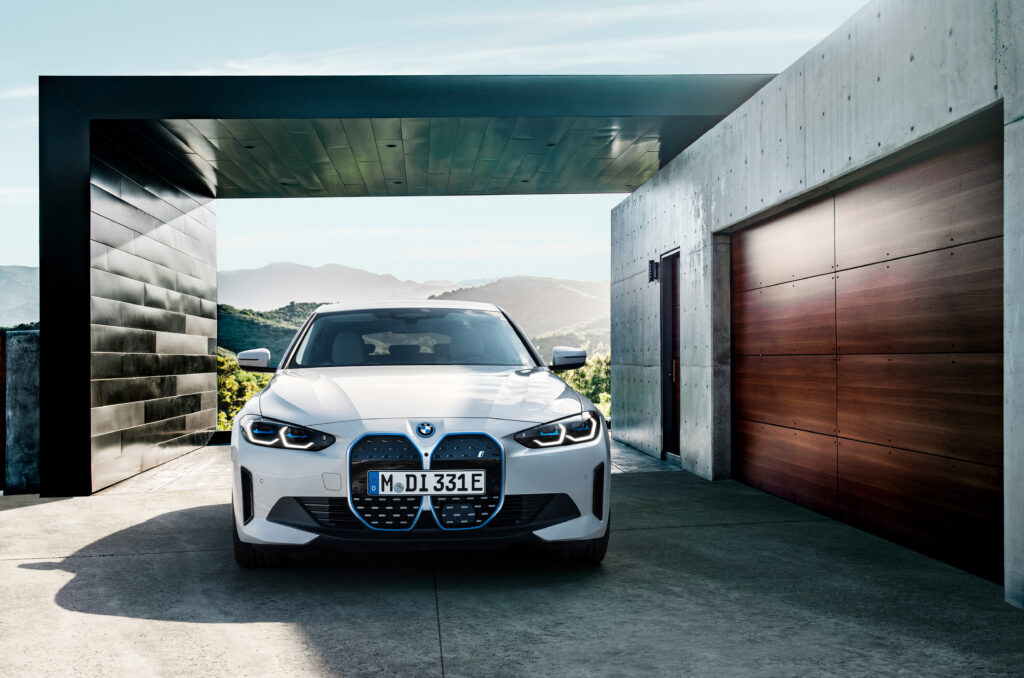
The EV6 is much less traditional, taking the shape of a mix between a sedan and an SUV. The design is striking from every angle and its sharp lines throughout the body seem dramatic. To me, the design of the Kia appeals more exciting, when compared to that of the Beamer. The i4 is based on the CLAR architecture which is seen in the Electric flagship SUV iX whereas the Korean, on the other hand, is based on the E-GMP, which is an EV platform by Hyundai Group.
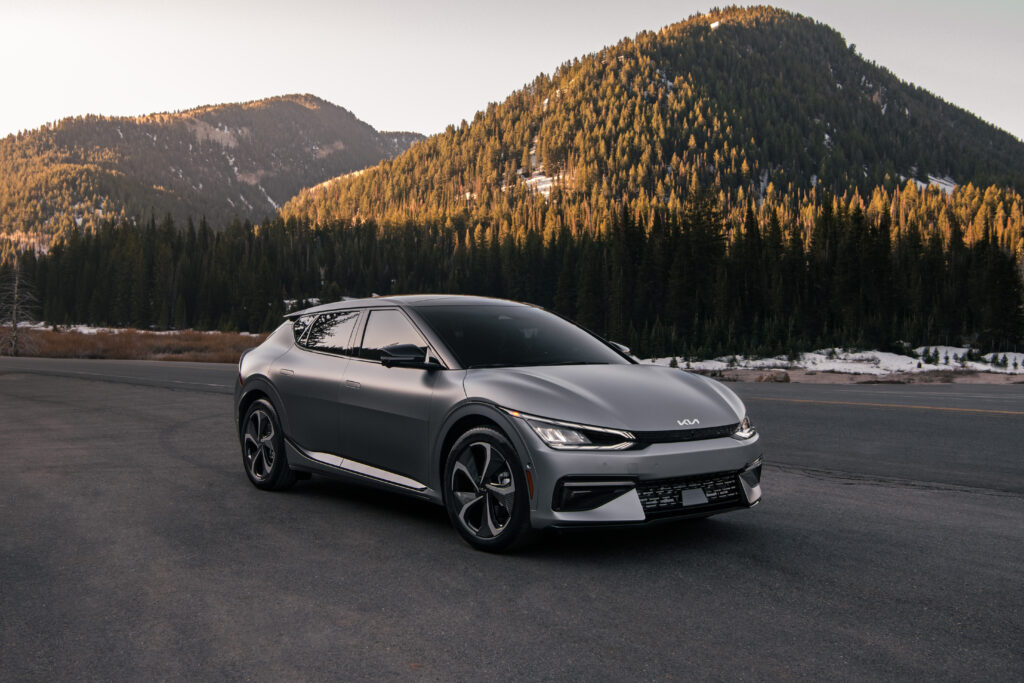
Performance and Range
The Germans have offered the i4 with only one trim, being the eDrive40 with RWD, producing 340 horses and 430NM of torque, whereas the EV6 is offered in 2 trims; GT and GT-line. The GT trim is RWD putting out 229 horses and 350NM of torque and the top-spec GT-Line trim is an AWD producing 325 and 605NM of torque. That’s where the similarities end as the BMW sweeps the floor with its range.
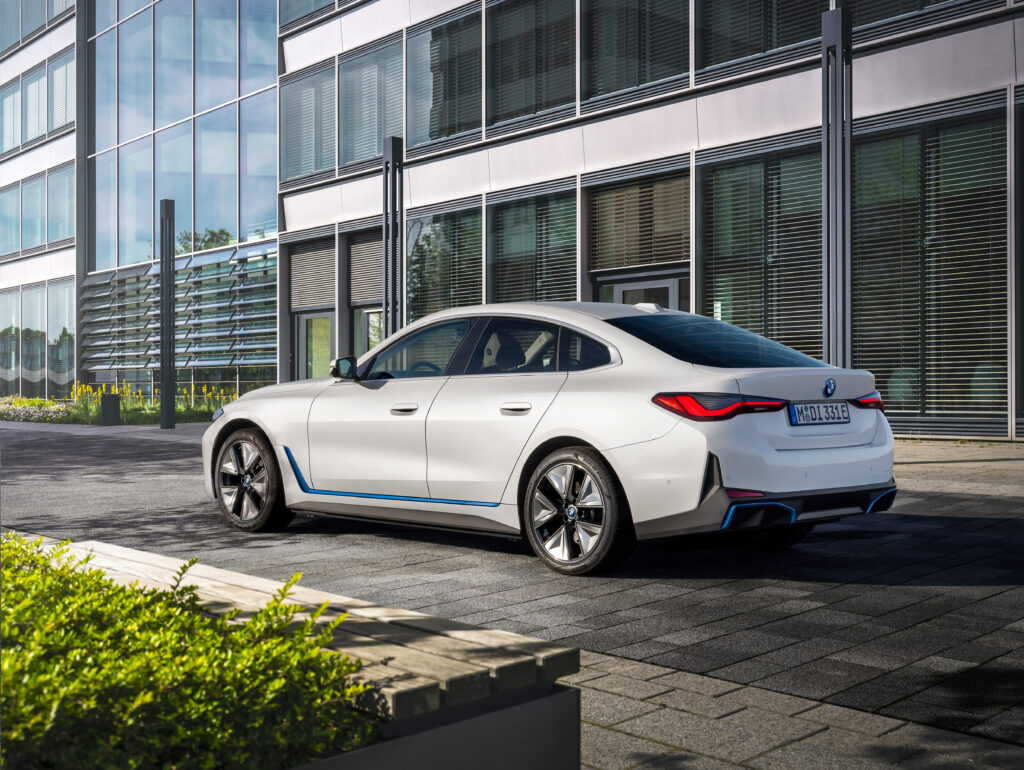
The BMW is powered by an 83.3kWh battery which they claim can deliver a range of up to 590kms whereas the Kia is powered by a 77.4kWh battery that lasts 523kms. The Kia EV6 and the BMW i4 both offer rapid charging through a DC outlet. With a 350 kW DC fast charger, the Kia EV6 can be charged from 10% to 80% in 18 minutes, and it takes 73 minutes with a 50 kW charger. The BMW i4 can charge from 10% to 80% using a 205 kW DC charger in 31 minutes, whereas it takes 83 minutes with a 50 kW DC charger.
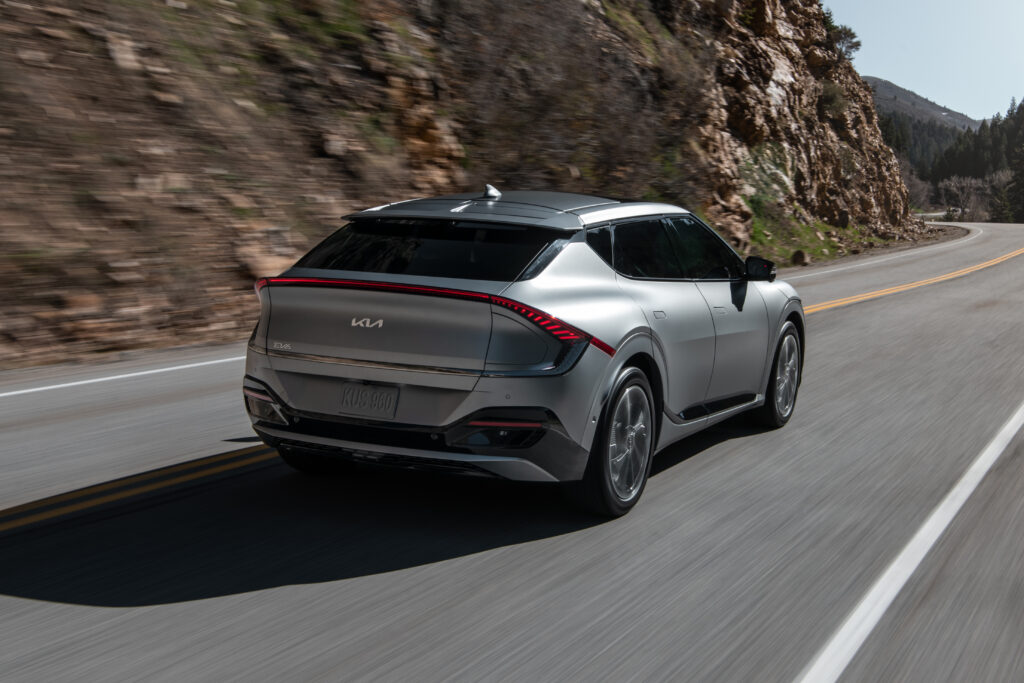
Features
Both cars come with a lot of similar tech. The i4 comes with a 14.9-inch touchscreen infotainment system with the latest iDrive 8 interface supported by the Harman Kardon sound system with 17 speakers and complemented by a 12.3-inch digital instrument cluster. The EV6 also offers dual 12.3-inch curved displays with a head-up display and a Meridian sound system with 14 speakers.
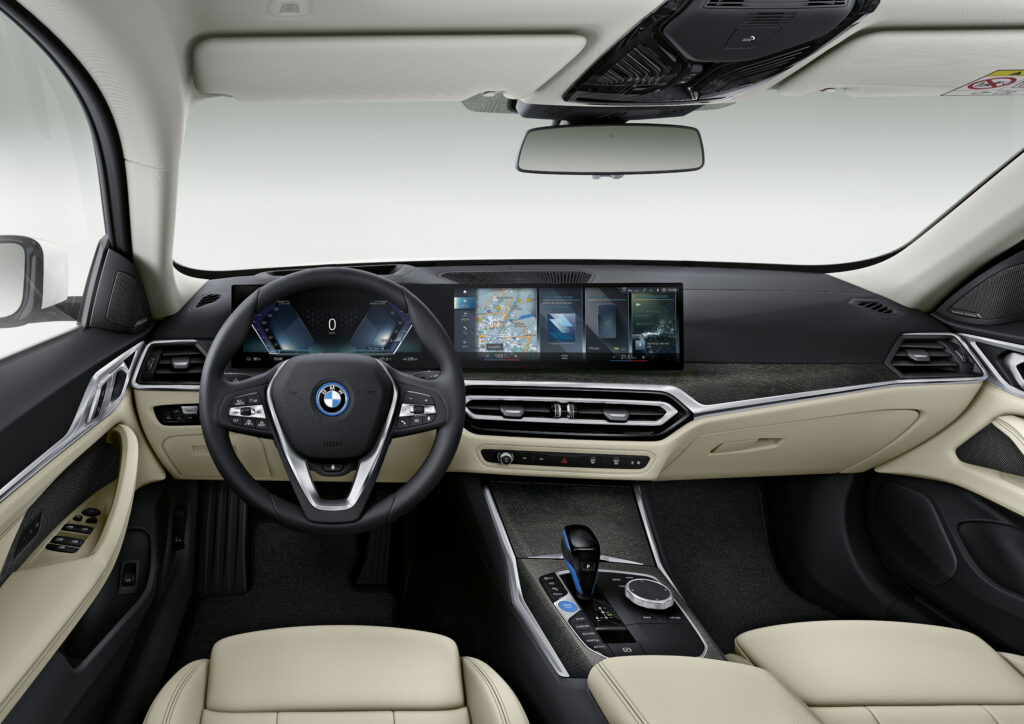
The BMW offers a sunroof, powered front seats, ambient lighting, and 3-zone climate control, among other features. Sunroof and powered front seats are also available for the Kia, but 3-zone climate control isn’t one of them. But the safety technology that the Kia offers, such as multi-collision braking assist, VSM, and ADAS, significantly sets it apart from the BMW.
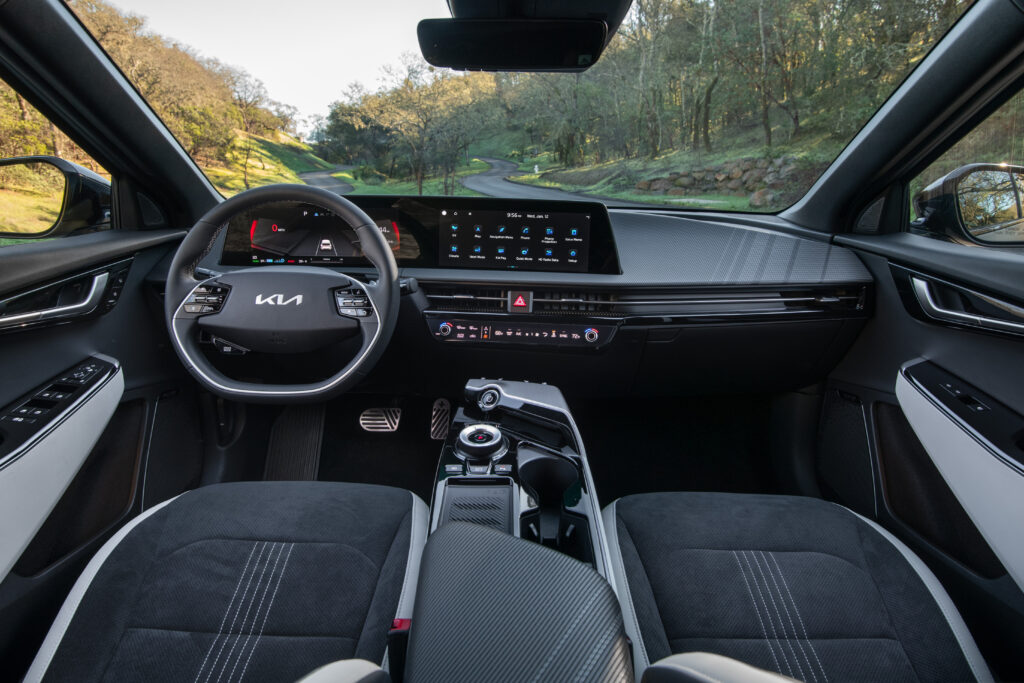
Price and verdict
The Kia EV6 is priced at Rs 59.95 lakh for the GT and the top of the trim GT-Line is priced at Rs 64.95 lakh. But to all our surprise, BMW has priced its i4 at Rs 69.90 lakh. Now, this changes the dynamic of the way we see both these cars now. The Kia EV6 sounded like good value until BMW revealed its pricing of the i4. Yes, the BMW is slightly more expensive but the difference barely matters when you consider you’re getting a more premium badge with a significantly higher range. EV6 is Kia India’s flagship vehicle but they plan to sell only 100 units for now. And as you’re reading this, all of them have been spoken for. The i4, on the other hand, is a mass-market product as per BMW standards.
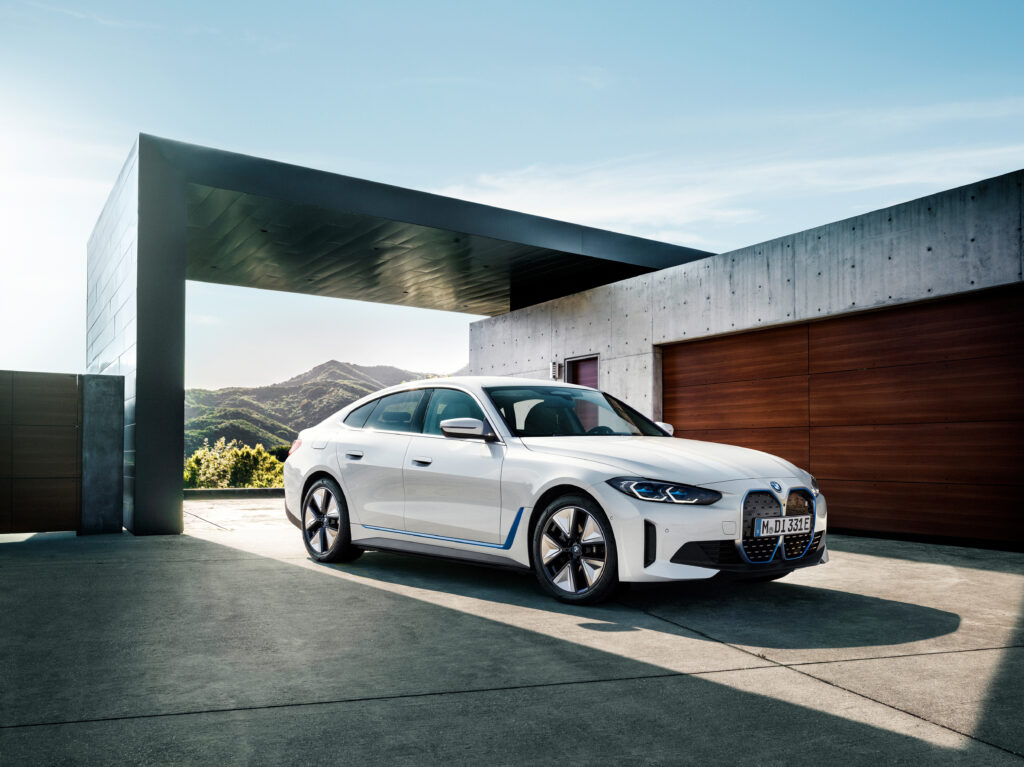
The EV6 carries a lot of promise and is still one of the most striking-looking EVs around, but comes up short when pitted against the i4 as a value product. The i4 sounds like a winner here and BMW have nailed its pricing. We hope Kia brings more units of the EV6 here but in the meantime, we’re also hearing about Hyundai planning to locally manufacture their Ioniq 5, which is the EV6’s sibling across the brand. If Hyundai prices it at the 40-50 lakh mark, it has the potential to shake up the market.








